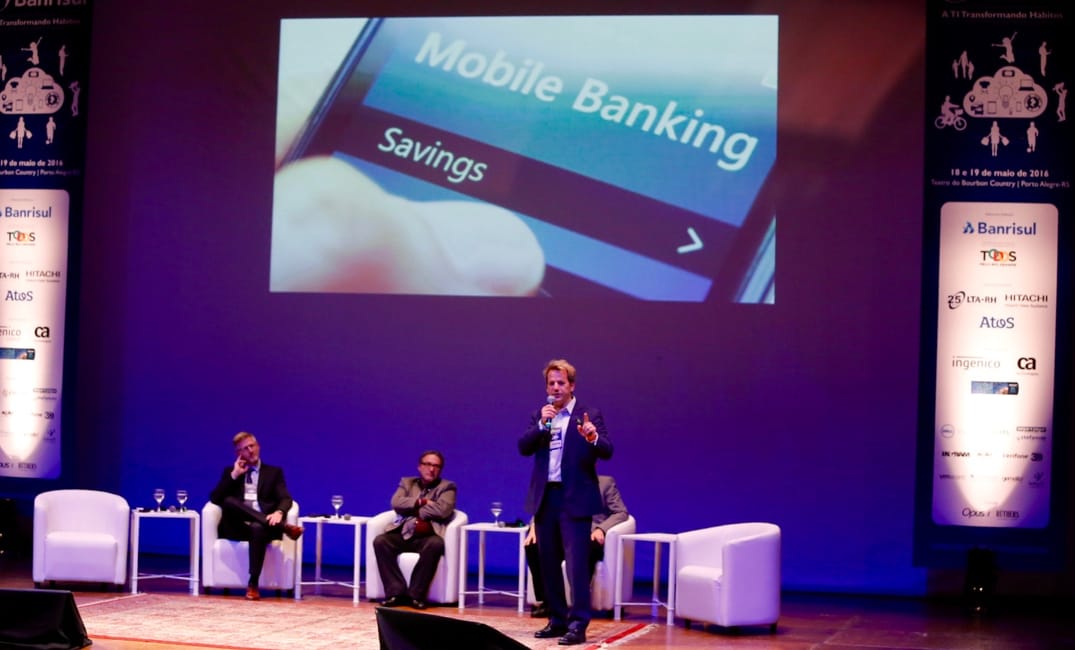I love public speaking. In fact, I used to joke with my bosses that if they fired me the day before a speaking event, I'd still be back the next day. I've had the opportunity to record a session for the upcoming APICON (April 13-15, 2021). It's my first event since January 2020, partly because I stopped working in September to care for the kiddos.
For a bunch of reasons, only some of which I understand, I've always gotten good feedback as a public speaker. I get high marks in authenticity and energy, but there's also something that's harder to explain/express. For example, early on at Axway, I spoke at a Gartner event and my delivery really stood out (we were the highest attended vendor session at the event).
I haven't always been able to articulate for others what I'm doing that expresses as this end result. It's like,what's the secret ingredient that makes my presentations more something?
When I recorded my APICON session, I got the same feedback from my host -- interesting, unique session, that I make it easy to understand complex topics, and bursting with energy.
Because it was so "awkward" (simply the fact that I'm recording to a video camera without an audience) I was able to notice a few things. These things are some of the ingredients I use to stand out as a speaker.
- Other speakers inspire me. I listen to other sessions, speak to other speakers about their ideas, and work what they say into my session. This serves to have other points of view, and external validation to the points I'm making. It also makes the session, and the event, richer... because it appears to be more cohesive when speakers connect their content with either others' work. That last point is subtle, but I believe powerful. Speaking alone, out of context of the other speakers, definitely takes away from my session.
- It's easier to adapt in person. It's easy to get on a stage and talk, and watch the clock and be on time. To adjust the session down if you start late, or dig in to something that seems to resonate with the audience. To pause for laughter, or say something to shock the audience awake. Remote, there are a million different things with the tech... I lose track of time even though I have a timer, because there are so many other little details of the delivery that I'm managing. I went over time for APICON, something I never do live as I find it super disrespectful to the audience, the organizers, and the other speakers. But, I also growled at the screen once, the second time I accidentally forwarded two slides at once.
- The camera is unforgiving. Even with a timer, if I look away for a second at it, or my notes, or because I'm lost in the content and not paying attention to where my face is wandering... it looks terrible. Looks matter. The care we do things with matter. So, I wanted to make sure I was facing the camera... and that was constraining. By the way, I don't read notes when I speak. What I do have is "milestones" and "key points" that I need to make sure I work in, or help me keep the flow of the presentation going where I want to. These milestones help me get back on track if I wander too far from the topic, but allow me to be very natural (because I can wander).
- No audience feedback. When you're speaking to a live audience, your eyes glance around the room. You feel the audience and how they're responding. Sometimes, you might catch someone's eyes and you can see you've said something that catches their attention, and so you start talking directly to them. Maybe taking a little longer than the "script" or allowing the tangent to flow. Connecting with that one person. Then, the next. It's powerful. It's human. And it's completey absent from an online session.
I'm sure there's more, but I hope these four are helpful for aspiring speakers to level up their delivery. I sure can't wait to get back on airplanes, though, it'll likely be more for training than for speaking. Time will tell.
It's been a long week. I got a kind comment on LinkedIn about this post from a former co-worker, a friend, another parent. If you see something good, say something. It helps.


